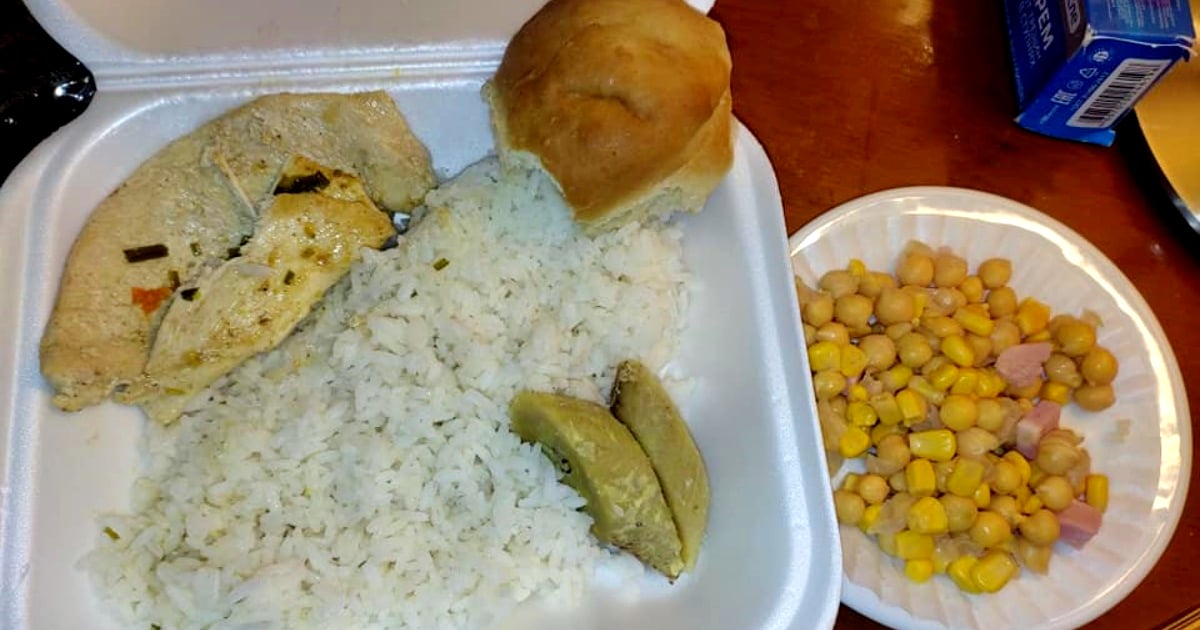
The recent opening of the importing company Mesol, under the management of Meliá Hotels International in Cuba, highlights the deep crisis the island is experiencing in terms of the supply of basic products.
This initiative, although presented by the state-run media as an efficient solution to maintain quality in the hotels of the Spanish chain, is a reflection of the ineffectiveness of the Cuban government in guaranteeing the provision of essential goods to its population and, now, to its business partners.
The company Mesol, established in early this year, aims to supply Meliá hotels with a wide range of products, from food and beverages to cleaning items and kitchenware.
This strategic move responds to the increasing difficulty of finding basic products in the Cuban market, a problem that has affected not only citizens but also the large hotel chains operating in the country.
The official statement from Meliá emphasizes that Mesol will work closely with hotel teams and long-standing suppliers, primarily from Spain, although new suppliers will also be sought in the Caribbean and Latin America.
This distribution network, which includes nationalization, transportation, and storage of products, aims to ensure a constant flow of supplies that allows maintaining the quality of service characteristic of Meliá.
However, this import strategy is not new among hotel chains in Cuba. According to the independent media 14ymedio, other companies, such as the Indian MGM Muthu Hotels and the Canadian Blue Diamond, have followed similar paths. These companies have established their own importers to bring in everything from furniture to food products like Nutella and ketchup, items that are scarce or nonexistent in the Cuban market.
The Cuban government, meanwhile, has shown an ambivalent stance regarding this situation. On one hand, it has publicly criticized the dependence on imports, arguing that the country should be able to supply hotels with national products, thereby promoting economic linkage.
In a 2022 article, the official newspaper Granma emphasized the need for hotels to buy locally, but did not mention the systemic problems that prevent local farmers from meeting the demand.
The reality is that contracts between hotel companies and local producers are managed through the Ministry of Agriculture, an intermediary that, according to testimonies, disincentivizes farmers due to irregular payments and contract defaults. This situation has generated widespread distrust and a decrease in local production, exacerbating the need to resort to imports.
Meliá's decision to create Mesol comes at a time of stagnation in tourism in Cuba, where revenue and hotel occupancy have not met expectations.
The political and economic situation on the island has damaged its international image, negatively affecting the flow of tourists. In 2023, Cuba was the only destination where Meliá recorded a decline in income and hotel occupancy, a clear indicator of the crisis facing the sector.
In March of that year, the Cuban government acknowledged the problems facing the tourism sector. Insufficient air connectivity, unpaid debts to suppliers that disrupted the supply chain, and difficulties accessing the international market, among others, were the issues the sector was facing, as mentioned in a report by Canal Caribe.
To address the crisis, the government stressed the need to increase contracts with domestic suppliers and to supply hotels with food and other services.
He also acknowledged that there was a depletion of the sector, caused by the lack of personnel to work in hotels and tourist facilities and, although he did not mention it, the problem coincided with the exodus of Cubans recorded in recent years.
Complaints from tourists about the poor quality of the food offered at tourist facilities fill pages and pages of comments on travel and tourism specialized websites.
"The food was hardly edible, most of the time it wasn't," said a Canadian tourist who spent two weeks at the Barceló Solymar - Occidental Arenas Blancas hotel complex in Varadero.
"The worst experience of her life," summarized the tourist, who added that this situation forced her to eat outside the hotel complex most of the time.
The snacks consisted of “stale rolls from the day before, a raw hot dog, or a single slice of meat... Without ketchup or mustard,” he added. “They served me raw chicken and rice with stones inside,” he reported.
"Scarce food and lines of up to two hours to get a piece of meat," described some tourists last May about the situation at the Meliá Las Dunas hotel in Cayo Santa María, in the north of the Cuban province of Villa Clara.
"Third day in Varadero, Cuba, and now we are finally going to have dinner at a decent place, because the food at the hotel is horrible," said a Mexican tourist who spent his vacation in the famous resort in July 2023.
The Cuban regime's focus on developing tourism at the expense of other vital sectors is an unsustainable strategy. The creation of importing companies by foreign hotel chains is a stopgap measure that highlights the government's inability to efficiently manage the economy and ensure the well-being of its citizens.
Instead of relying on imports, Cuba should focus on strengthening its local production and create an economic environment that enables its inhabitants and business partners to thrive without resorting to external solutions.
What do you think?
COMMENTFiled under: